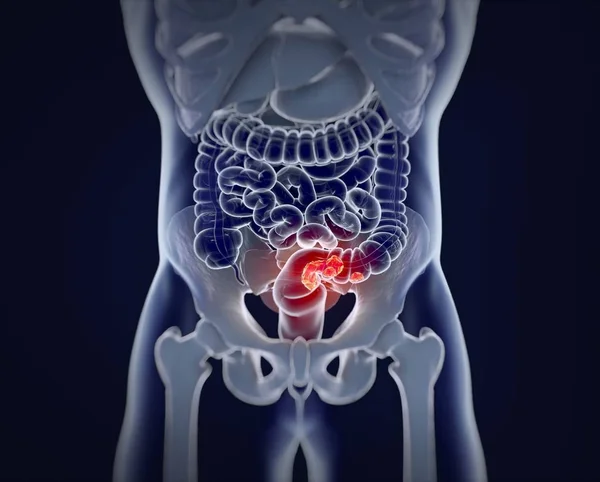Colorectal cancer rates are increasing rapidly among young people in their 20s, 30s, and 40s, according to a recent report by the American Cancer Society.
This alarming development has experts racing to understand the causes behind the rise in early-onset colorectal cancer cases.
Colorectal Cancer Now a Leading Cause of Cancer Deaths in Young Adults

Source: Depositphotos
Colorectal cancer has become the top cause of cancer deaths in men under 50 and the second-leading cause of cancer deaths in women under 50 in the United States.
Despite overall incidence declining in people over 65, the rise in early-onset colorectal cancer cases has been steady, increasing by about 2 per cent per year since the mid-1990s.
Symptoms of Colorectal Cancer Often Overlooked in Young People
Many young adults experiencing symptoms of this type of cancer, such as blood in stool, changes in bowel habits, and difficulty controlling bowel movements, often have their concerns dismissed by doctors.
As in the case of Marisa Peters, who experienced symptoms for years before being diagnosed with this type of cancer in her 30s, the assumption that these issues are related to hemorrhoids or postpartum changes can delay proper diagnosis and treatment.
Experts Seek to Understand the Causes of Early-Onset Colorectal Cancer
As the incidence of early-onset colorectal cancer continues to rise globally, experts are working to identify the factors contributing to this trend.
While the exact causes remain unclear, researchers are exploring potential links to diet, lifestyle, and environmental factors that may play a role in the development of this type of cancer in younger individuals.
Raising Awareness and Encouraging Early Screening
Given the increasing prevalence of this type of cancer among young adults, it is crucial for parents to be aware of the signs and symptoms and to advocate for their children’s health.
If you or your child experience persistent changes in bowel habits, blood in stool, or other concerning symptoms, don’t hesitate to seek medical attention and request a thorough evaluation, including a colonoscopy if necessary.
By staying informed, promoting healthy lifestyles, and pushing for early screening when appropriate, we can work together to combat the rising tide of early-onset this type of cancer and protect the health of our younger generations.
Let’s break the silence surrounding this issue and encourage open conversations about colorectal health to ensure that no one, regardless of age, faces this disease alone.
ALSO READ
Cholangiocarcinoma: A Woman’s Courage in the Face of Cancer & Death
Sharing Tough News: Talking to Your Child About Your Cancer
Kate Middleton Reveals Shocking Cancer Diagnosis The Royal Family Kept Hidden
 Together Against RSV
Together Against RSV SG60
SG60 Pregnancy
Pregnancy Parenting
Parenting Child
Child Feeding & Nutrition
Feeding & Nutrition Education
Education Lifestyle
Lifestyle Events
Events Holiday Hub
Holiday Hub Aptamil
Aptamil TAP Recommends
TAP Recommends Shopping
Shopping Press Releases
Press Releases Project Sidekicks
Project Sidekicks Community
Community Advertise With Us
Advertise With Us Contact Us
Contact Us VIP
VIP Rewards
Rewards VIP Parents
VIP Parents
